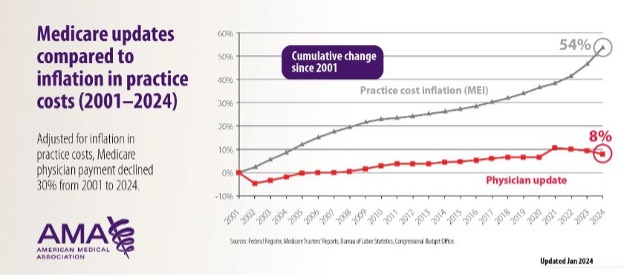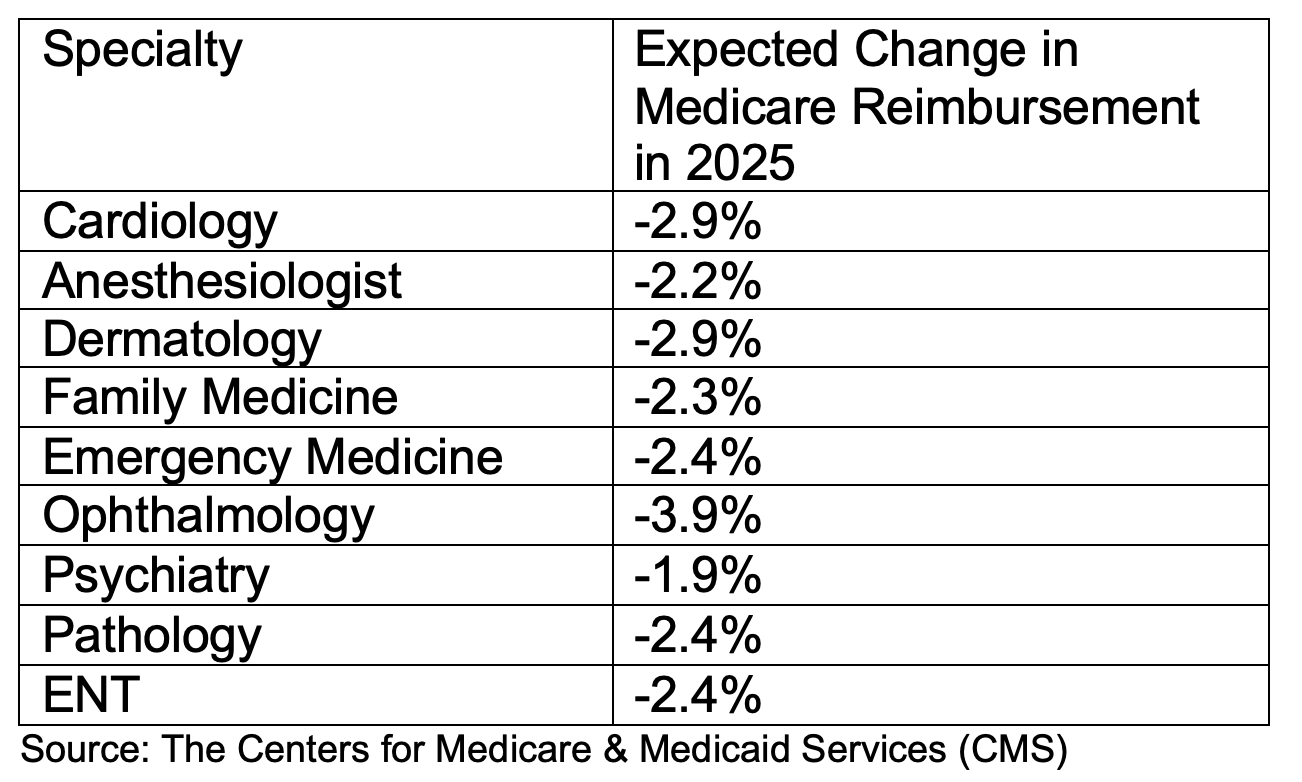Update on pending Medicare payment cuts
By Jarrod Fowler, MHA, FMA Director of Health Care Policy and Innovation
What’s happening?
Next year, physicians face a 2.8% Medicare conversion factor cut. This significant pay reduction is largely the result of Congress’ unwillingness to statutorily fix the Medicare Physician Fee Schedule. For years, physicians have been telling federal lawmakers that the Medicare Physician Fee Schedule is unsustainable. Year after year of cuts have further destabilized the traditional Medicare program and left physicians wondering whether they’ll have to cut back on providing care to vulnerable seniors to keep their practices economically solvent.
How did we get here?
Medicare payments to physicians have lagged behind inflation for decades, even as payments to hospitals, skilled nursing facilities, Medicare Advantage plans, and other entities have received considerable pay increases. Despite strong advocacy from physician organizations, Congress has yet to take action to prevent this pending crisis. Meanwhile, more and more physicians are being forced to consolidate their practices, limit Medicare patients, and contemplate whether they’ll be able to continue seeing Medicare patients in the future. The CMS Office of the Actuary and the Medicare Payment Advisory Commission have acknowledged the problem that this lack of payment updates has created.
 How will this affect individual specialties?
How will this affect individual specialties?
The average impact of these proposed cuts will vary based on specialty. Some specialists, such as interventional radiologists, are expected to see their average Medicare reimbursement decline as much as 4.2%. Other specialists, such as family medicine physicians, are expected to see a smaller cut in the range of 2.3%. The chart below summarizes the expected impact of the cuts for select specialties.
 What can physicians do?
What can physicians do?
Tell your House representative to support
HR 6545, the Physician Fee Schedule Update and Improvement Act. This legislation would address future Medicare pay cuts as well as certain aspects of budget neutrality, the system that requires pay increases for some specialties to be offset by cuts to others.
What’s next?
Congress often addresses these cuts at the last minute through budget legislation. The extent to which Congress will offset these scheduled cuts, if at all, remains to be seen. As always, the FMA will advocate for your interests and keep you updated as the legislative process moves forward.